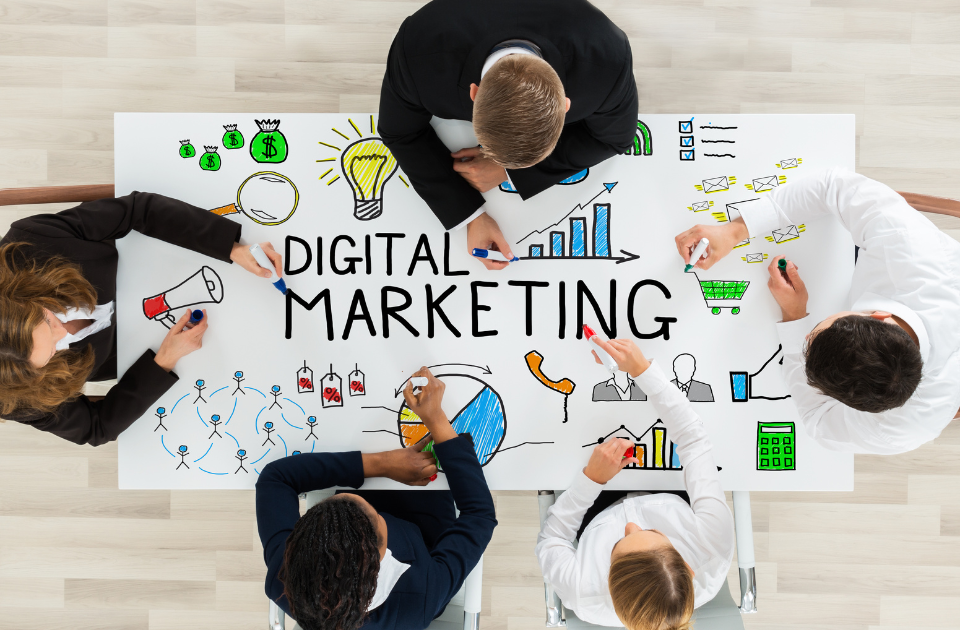Introduction: Digital marketing has become a cornerstone of modern business success, offering diverse strategies and channels to reach and engage target audiences effectively. In today’s digital landscape, businesses must leverage the power of digital marketing to drive brand awareness, customer acquisition, and revenue growth. Let’s delve into some effective digital marketing strategies that businesses can implement to achieve success.
- Search Engine Optimization (SEO): SEO is a fundamental digital marketing strategy that focuses on optimizing website content, structure, and performance to rank higher in search engine results pages (SERPs). Businesses can improve their visibility and organic traffic by optimizing keywords, meta tags, headings, and URLs, creating high-quality content, building backlinks, and ensuring mobile-friendliness and site speed. SEO drives organic traffic, enhances brand credibility, and increases website conversions.
- Content Marketing: Content marketing involves creating and distributing valuable, relevant, and engaging content to attract and retain audiences. Businesses can leverage content marketing through blogs, articles, videos, infographics, podcasts, and social media posts to educate, inform, entertain, and inspire their target audience. Providing valuable content builds trust, authority, and brand loyalty, driving traffic, engagement, and conversions.
- Social Media Marketing: Social media platforms offer powerful marketing opportunities for businesses to connect with customers, build relationships, and promote products or services. Businesses can use social media marketing to share content, engage with followers, run targeted ads, conduct contests or giveaways, and leverage influencer partnerships. Social media marketing enhances brand visibility, fosters community engagement, and drives website traffic and conversions.
- Email Marketing: Email marketing remains a cost-effective and impactful digital marketing strategy for businesses to nurture leads, communicate with customers, and promote products or services. Businesses can create personalized and targeted email campaigns, including newsletters, promotions, product updates, and event invitations, to engage subscribers and drive conversions. Email marketing automation tools enable businesses to segment audiences, track engagement, and optimize campaigns for better results.
- Pay-Per-Click (PPC) Advertising: PPC advertising allows businesses to display ads on search engines and social media platforms, paying only when users click on the ads. Businesses can create targeted and optimized PPC campaigns using keywords, demographics, interests, and retargeting strategies to reach potential customers at different stages of the buying journey. PPC advertising drives website traffic, generates leads, and delivers measurable ROI through ad performance metrics.
- Influencer Marketing: Influencer marketing involves collaborating with influencers, bloggers, or industry experts to promote products or services to their followers and audience. Businesses can partner with influencers whose audience aligns with their target market, leveraging their influence, credibility, and reach to increase brand visibility, engagement, and conversions. Influencer marketing builds brand advocacy, drives social proof, and expands brand reach to new audiences.
Conclusion: Digital marketing encompasses a wide range of strategies and tactics that businesses can leverage to achieve their marketing goals and drive business growth. By adopting effective digital marketing strategies such as SEO, content marketing, social media marketing, email marketing, PPC advertising, and influencer marketing, businesses can reach, engage, and convert target audiences effectively in the digital era. Implementing a cohesive digital marketing strategy tailored to business objectives and audience preferences is key to unlocking success, driving brand awareness, customer engagement, and revenue generation in today’s competitive marketplace.
